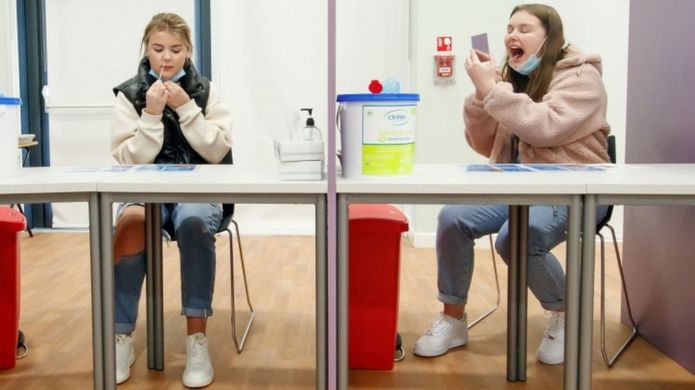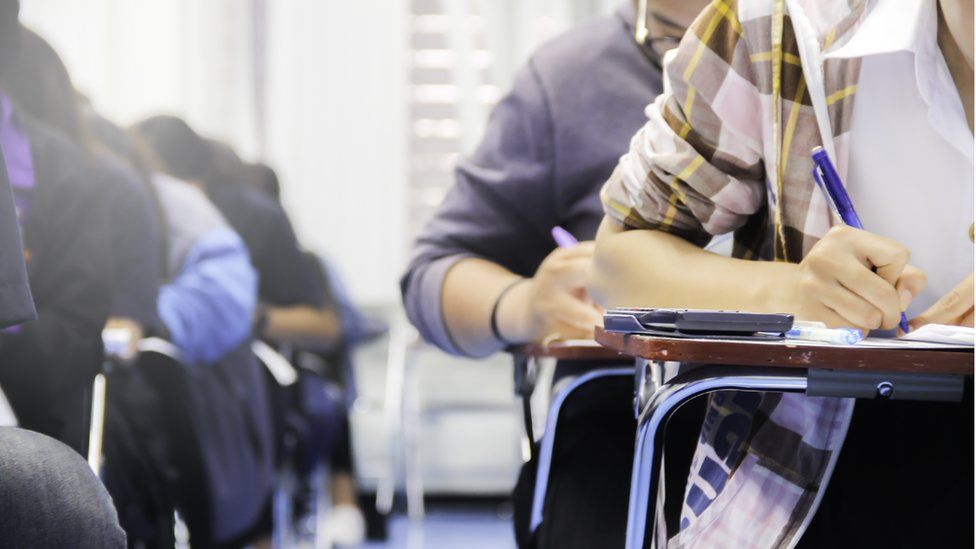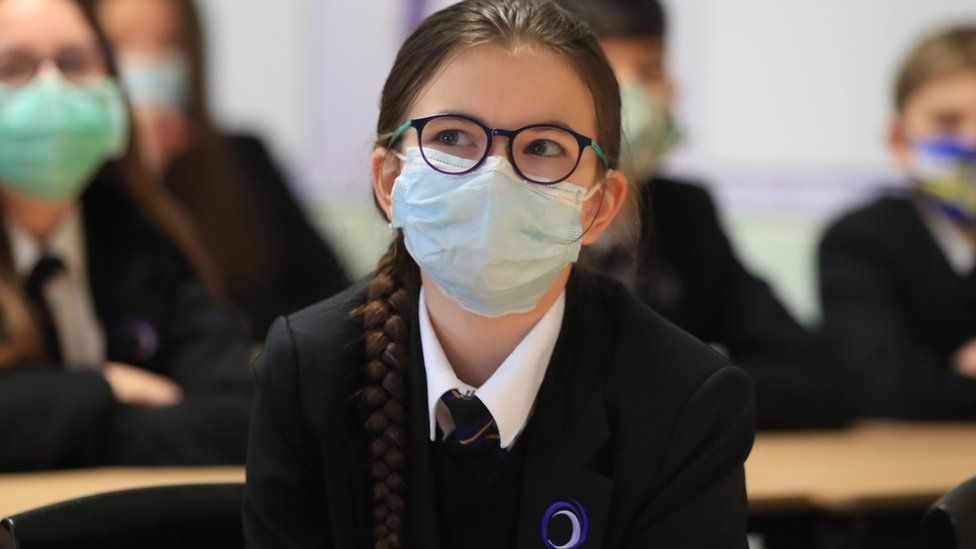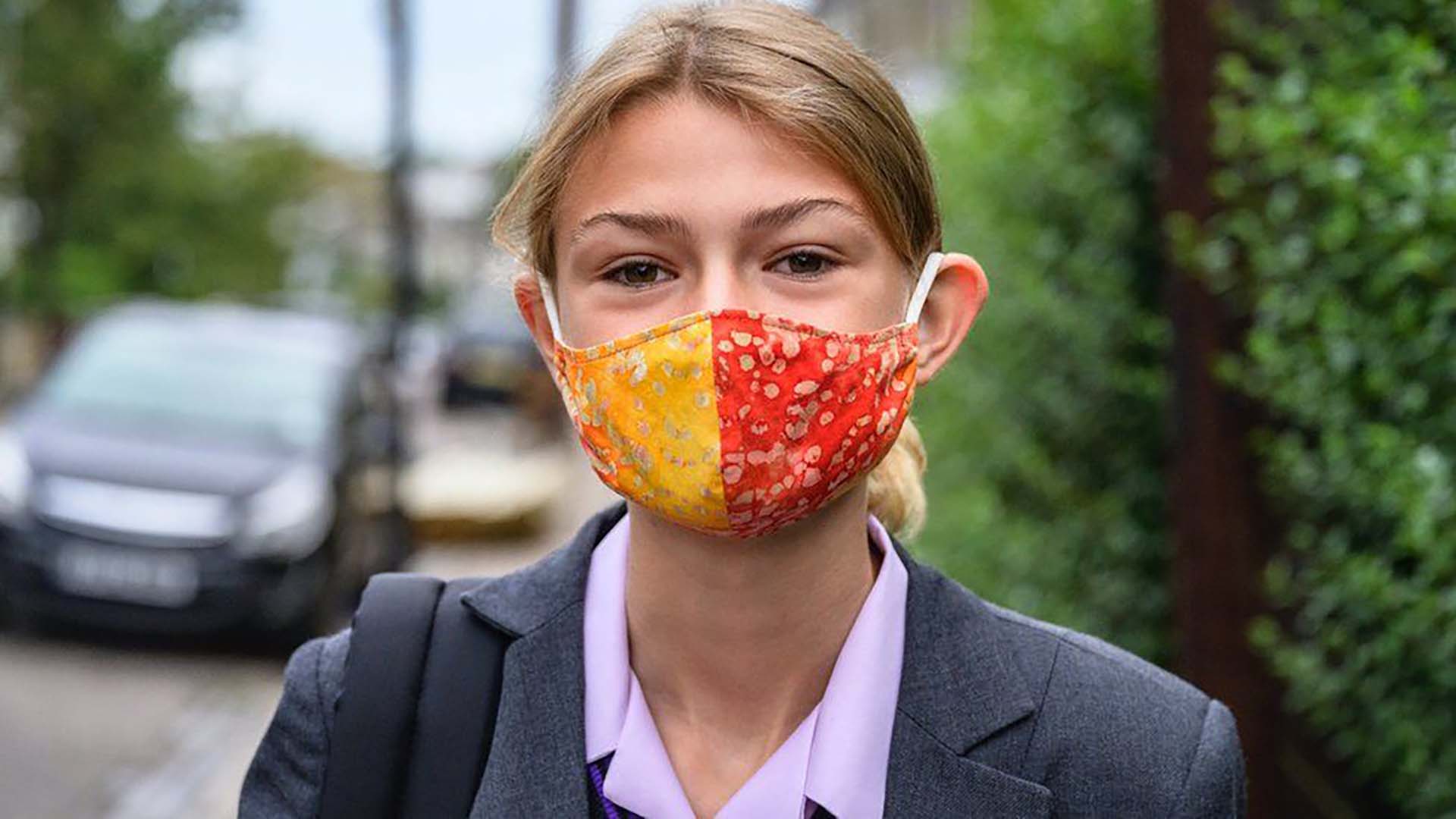Longer school days and shorter holidays are among the measures the government is considering to help pupils in England catch up on lost learning, the education secretary has said.
Gavin Williamson told the BBC ministers were looking at “how the school year runs” after the disruption of Covid.
He also told Sky News a five-term year and changes to summer holidays were under consideration.
Schools in England are reopening to all pupils on Monday.
It marks the first step of the “road map” out of the national lockdown, which has been in place since the beginning of January and has seen most children learning from home since before Christmas.
Asked by the BBC’s Andrew Marr whether the government was going to extend the school day, Mr Williamson said: “I think we should be evidence-based and we’re looking at that, we’re looking at how the school year runs.”
Mr Williamson also told Sky News’ Sophy Ridge that ministers were considering “a whole range of proposals”.
- How will testing work in schools?
- Is school mask and testing policy flawed?
- How fresh air makes school safer
The education secretary was askedet whher schools would remain open if the R number rose above one, which means the number of cases is continuing to increase.
“We are very much factoring in as part of the road map that actually schools will be staying open,” Mr Williamson told the BBC.
“That is why we are taking a cautious approach because we intend for it to be an irreversible approach and that schools will continue to remain open.”
He also gave a guarantee that schools would return after the Easter holidays.

Dr Susan Hopkins, deputy director of Public Health England, said she did not think the reopening of schools should be paused if the R number rose above one.
With three weeks before the Easter holiday, she told the BBC there would be time to look at the data “very carefully”.
She said the relationship between the number of cases and the number of deaths and hospitalisations would also change in the next phase of the pandemic because of the impact of vaccinations.
“Then we will be able to accept some cases in the community without needing further restrictions,” she added.
Dr Hopkins said measures such as the testing of pupils to find asymptomatic cases would also help to keep R “at the lowest level possible”.
Attendance at school will be mandatory for all pupils when they reopen in England – meaning they should not miss lessons without a valid reason.
However, pupils who are shielding have been asked to remain at home for a bit longer.
Prime Minister Boris Johnson said he was “very hopeful” the reopening of schools would go to plan.
“I think the risk is actually in not going back to school tomorrow, given all the suffering, all the loss of learning we have seen,” he added.
Reference: BBC





